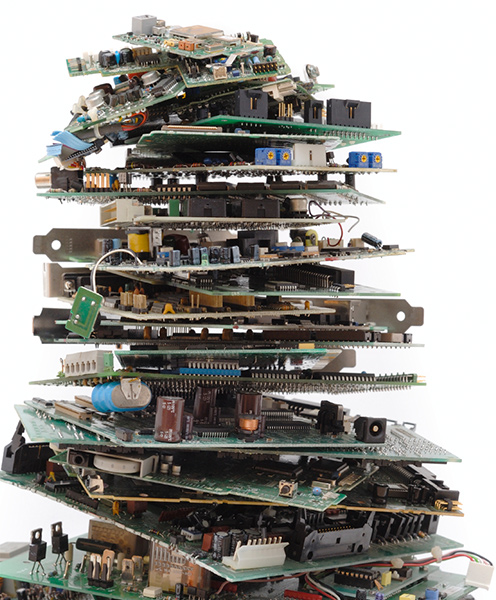What is E-waste?

The definition of electronic waste or e-waste, sometimes called e-scrap, is any electronic equipment that is near or at the end of its usefulness as technology. Examples include, but are not limited to computers, office electronic equipment, mobile phones, and monitors.
Once electronic equipment has been determined to be e-waste there are four essential possible outcomes for the material. First, ship it to an underdeveloped country to be used as is; second, refurbish it for the domestic market; third, disassemble the equipment and resell the marketable components; the fourth and last possible outcome is to process the components into non-ferrous metals such as gold, silver and copper for sale in the commodities market. The final recycling destination also includes leftovers of other ferrous metals such as aluminum, lead or steel, and plastics or rubber.
One very important compliance objective of e-waste recyclers is for no part of the e-waste to end up in a landfill. By properly processing and recycling e-waste, neither the environment or the workers handling it are harmed.
Furthermore, the recycling and reclamation of precious and ferrous metals is in our national interest because of net energy savings in obtaining non-ferrous metals without mining and because of a shortage of precious metals in the U.S.
Another benefit to the proper recycling of e-waste is job creation. Because businesses are finally understanding the importance of being green (reducing, reusing, recycling) and the importance of sustainable business practices, this growing sector(e-waste recycling) of the economy is a benefit to all.





